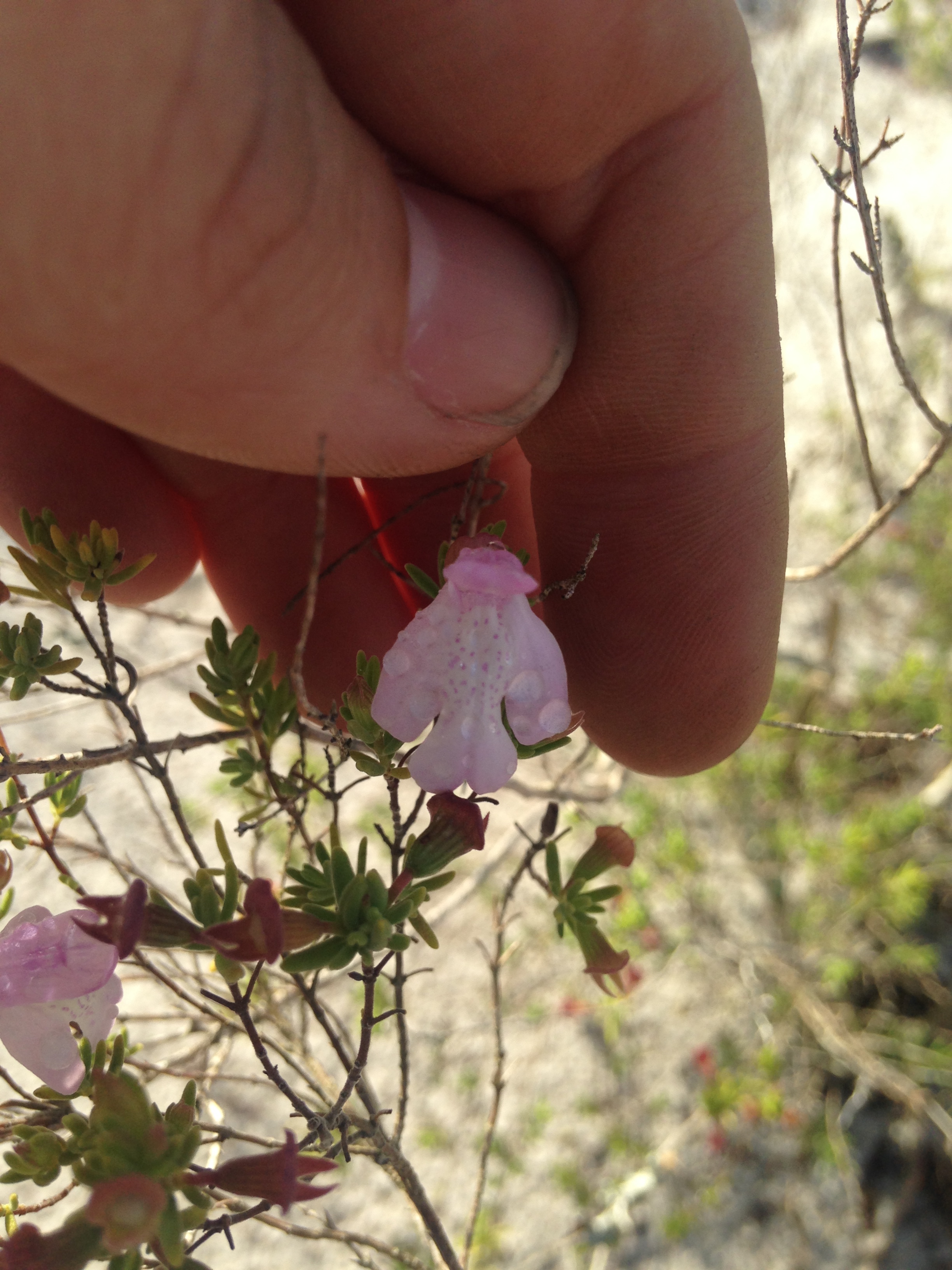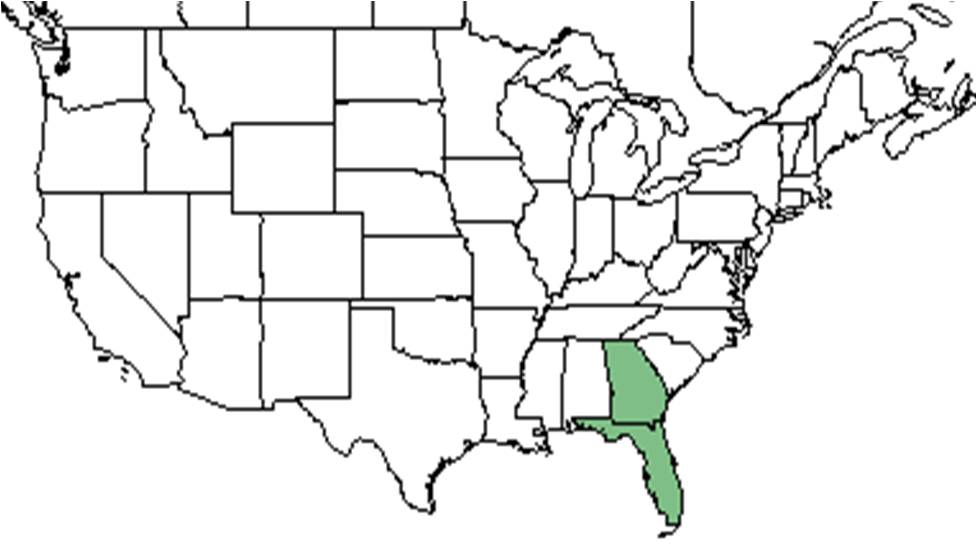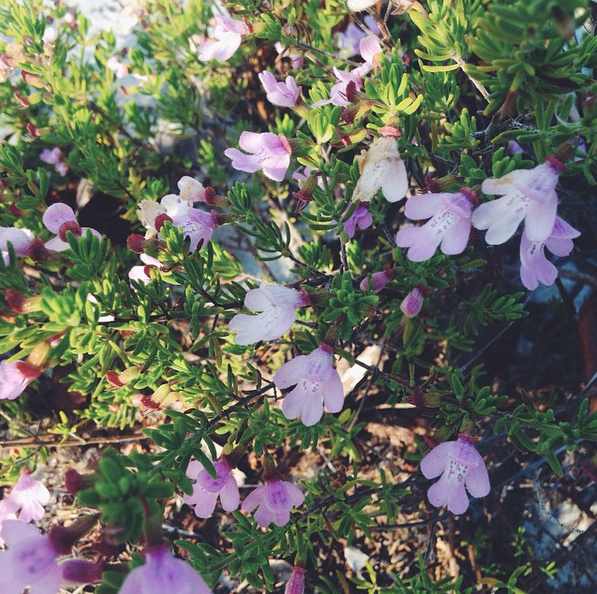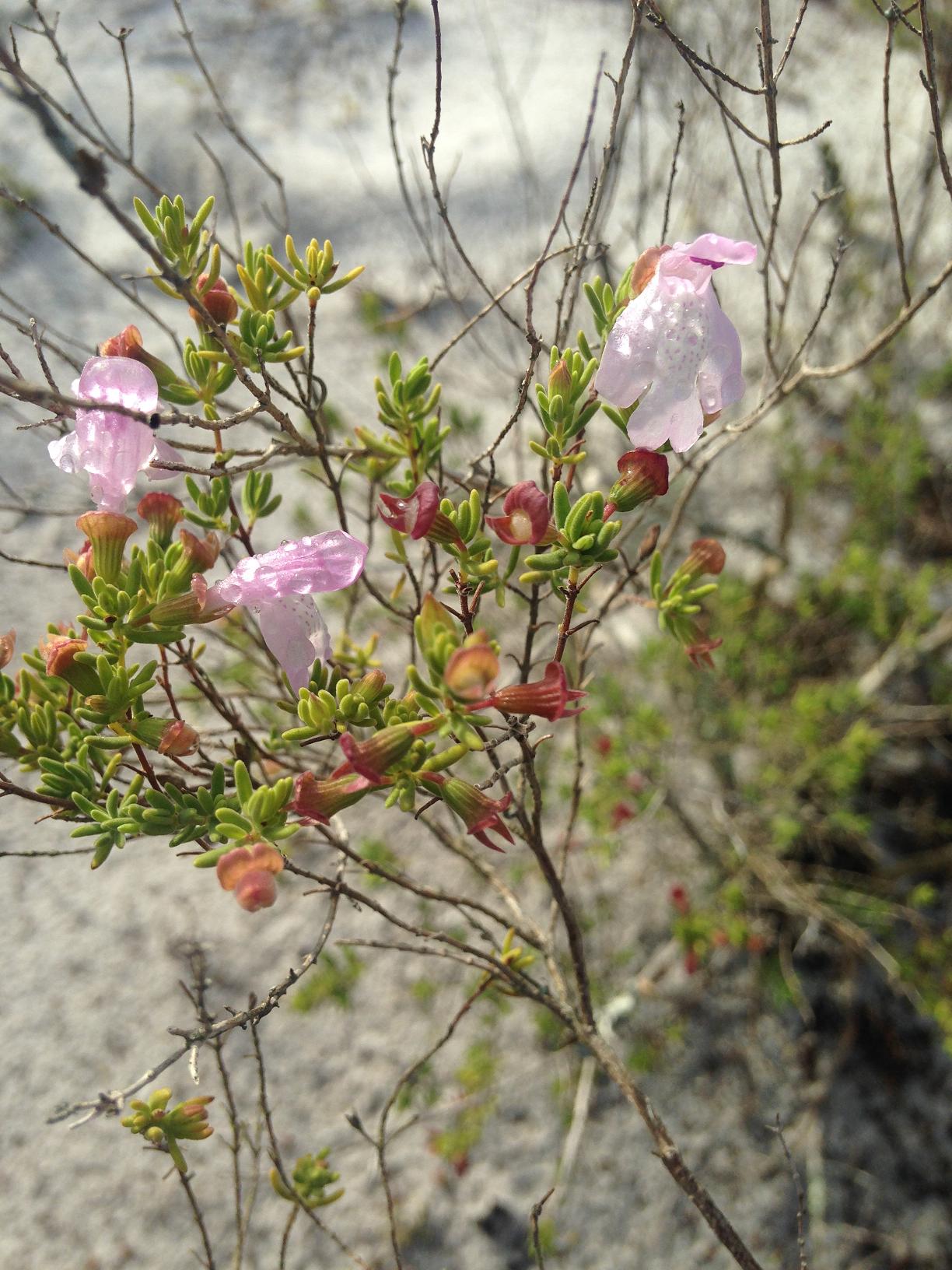Difference between revisions of "Clinopodium ashei"
KatieMccoy (talk | contribs) |
KatieMccoy (talk | contribs) (→Description) |
||
| Line 25: | Line 25: | ||
==Description== | ==Description== | ||
<!-- Basic life history facts such as annual/perrenial, monoecious/dioecious, root morphology, seed type, etc. --> | <!-- Basic life history facts such as annual/perrenial, monoecious/dioecious, root morphology, seed type, etc. --> | ||
| + | ''C. ashei'' is a perennial, aromatic shrub with linear leaves arranged in opposite clusters <ref name="USDA">[[http://plants.usda.gov/core/profile?symbol=Clas2 USDA Plants]] Accessed December 3, 2015</ref> <ref name="Natureserve">[[http://explorer.natureserve.org/servlet/NatureServe?searchName=Clinopodium+ashei NatureServe]]Accessed December 3, 2015</ref>. The bisexual flowers are pinkish-purple <ref name="Natureserve"/><ref name=Ladybird>[[https://www.wildflower.org/plants/result.php?id_plant=CLAS2 Lady Bird Johnson Wildflower Center]]Accessed: December 3, 2015</ref>. | ||
==Distribution== | ==Distribution== | ||
Revision as of 14:45, 3 December 2015
Common name: Ashe's calamint, Ashe's savory
| Clinopodium ashei | |
|---|---|

| |
| Scientific classification | |
| Kingdom: | Plantae |
| Division: | Magnoliophyta - Flowering plants |
| Class: | Magnoliopsida - Dicotyledons |
| Order: | Lamiales |
| Family: | Lamiaceae ⁄ Labiatae |
| Genus: | Clinopodium |
| Species: | C. ashei |
| Binomial name | |
| Clinopodium ashei (Weath.) Shinners | |

| |
| Natural range of Clinopodium ashei from USDA NRCS Plants Database. | |
Contents
Taxonomic notes
Synonym: Calamintha ashei
Description
C. ashei is a perennial, aromatic shrub with linear leaves arranged in opposite clusters [1] [2]. The bisexual flowers are pinkish-purple [2][3].
Distribution
Ecology
Habitat
In the Coastal Plain in Florida and Georgia, C. ashei has been found in pine-oak scrub ridges and Ceratiola scrubs (FSU Herbarium). Associated species include Sanidophyllum cumulicola, Osmanthus megacarpus, and Ilex cumulicola (FSU Herbarium).
Phenology
Flowers and fruits have been observed January through June (FSU Herbarium).
Seed dispersal
Seed bank and germination
Fire ecology
Pollination
The following Hymenoptera families and species were observed visiting flowers of Calamintha ashei at Archbold Biological Station (Deyrup 2015):
Apidae: Apis mellifera, Bombus impatiens, Epeolus erigeronis, Epeolus zonatus
Halictidae: Agapostemon splendens, Augochlorella aurata, Augochloropsis sumptuosa, Halictus poeyi, Lasioglossum nymphalis, L. puteulanum
Megachilidae: Anthidiellum notatum rufomaculatum, A.perplexum, Coelioxys germana, Hoplitis truncata, Lithurgus gibbosus, Megachile brevis pseudobrevis, M. campanulae, M. exilis parexilis, M. georgica, M. inimica, M. mendica, M. Megachile petulans, M. policaris, M. rugifrons, M. texana, Osmia calaminthae
Use by animals
Diseases and parasites
Conservation and Management
Cultivation and restoration
Photo Gallery
Photo Gallery
References and notes
Deyrup, M.A. and N.D. 2015. Database of observations of Hymenoptera visitations to flowers of plants on Archbold Biological Station, Florida, USA.
Florida State University Robert K. Godfrey Herbarium database. URL: http://herbarium.bio.fsu.edu. Last accessed: October 2015. Collectors: John R. Bozeman, D. Burch, Buswell, L.J. Brass, Chas. C. Deam, R.K. Godfrey, O. Lakela, Sidney McDaniel, Elmer C. Prichard, D.B. Ward. States and Counties: Florida: Highlands, Marion, Polk, Volusia. Georgia: Tattnall. Compiled by Tall Timbers Research Station and Land Conservancy.
- ↑ [USDA Plants] Accessed December 3, 2015
- ↑ 2.0 2.1 [NatureServe]Accessed December 3, 2015
- ↑ [Lady Bird Johnson Wildflower Center]Accessed: December 3, 2015

